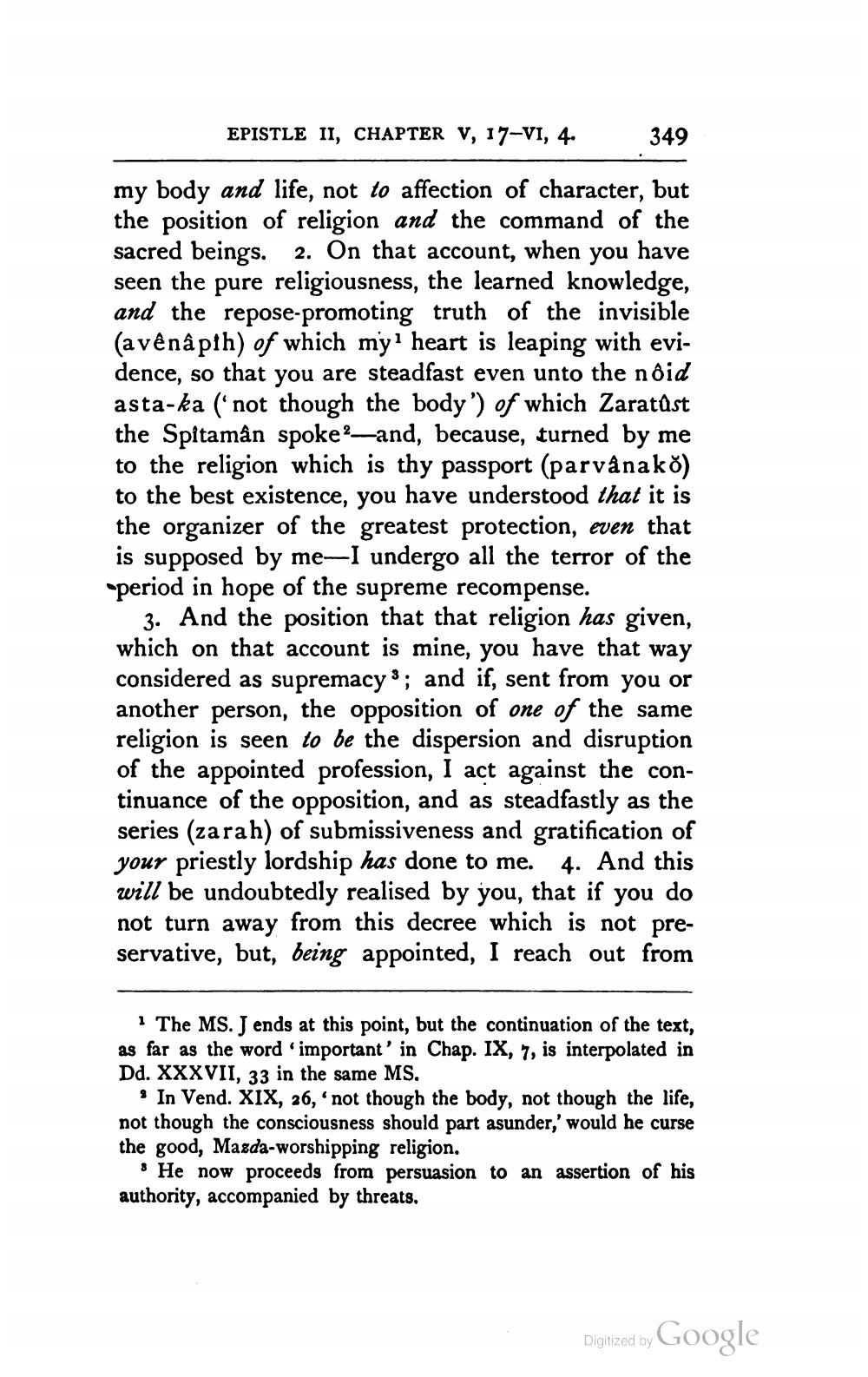________________
EPISTLE II, CHAPTER V, 17-V1, 4.
349
my body and life, not to affection of character, but the position of religion and the command of the sacred beings. 2. On that account, when you have seen the pure religiousness, the learned knowledge, and the repose-promoting truth of the invisible (avê nâpth) of which my heart is leaping with evidence, so that you are steadfast even unto the nốid asta-ka ('not though the body') of which Zaratast the Spitamân spoke and, because, turned by me to the religion which is thy passport (parvânako) to the best existence, you have understood that it is the organizer of the greatest protection, even that is supposed by mem I undergo all the terror of the period in hope of the supreme recompense.
3. And the position that that religion has given, which on that account is mine, you have that way considered as supremacy 3 ; and if, sent from you or another person, the opposition of one of the same religion is seen to be the dispersion and disruption of the appointed profession, I act against the continuance of the opposition, and as steadfastly as the series (zarah) of submissiveness and gratification of your priestly lordship has done to me. 4. And this will be undoubtedly realised by you, that if you do not turn away from this decree which is not preservative, but, being appointed, I reach out from
· The MS. J ends at this point, but the continuation of the text, as far as the word 'important' in Chap. IX, 7, is interpolated in Dd. XXXVII, 33 in the same MS.
In Vend. XIX, 26, 'not though the body, not though the life, not though the consciousness should part asunder,' would he curse the good, Maxda-worshipping religion.
• He now proceeds from persuasion to an assertion of his authority, accompanied by threats.
Digitized by Google




